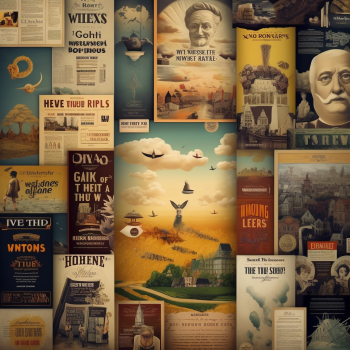Algeria:_Test_of_Power

简述
封面

影片信息
官方网站
暫無
影片原始规格:
- 中文片名 :
- 中文系列名:
- 英文片名 :Algeria: Test of Power
- 英文系列名:
- 电视台 :Others
- 语言 :英语
- 时间 :约 46 分钟/集
- 版本 :TV
- 发行时间 :2013
影片内容介绍
剧情简介
The story of Algeria’s past, present and future - from independence to the Arab Spring and beyond. Algeria was under French colonial rule for 132 years. From tears of joy at independence in 1962 to the tragic civil war of the 1990s and the anger that culminated in the Arab Spring, this series provides a unique insight into a country notoriously inaccessible to both journalists and filmmakers. Interviews with key players like Ben Bella, Ait Ahmed and President Abdelaziz Bouteflika, cover 50 years of tragic and powerful history from the Evian Accords of 1962 to the Arab Spring of 2011. This is the story of Algeria’s past, present and future. Produced by Flach Film.
分集介绍
Authoritarian Era
In 1962, Algeria proclaimed independence from France following eight years of war and over a century of colonial rule. The Algerian war of independence, and the negotiations that followed, spurred decades of political assassinations, coups, terrorist attacks and civil war. Hundreds of thousands of Europeans fled the country, but many Algerians who fought alongside the French during the war were left behind. Harkis, as they were called, faced torture and execution at the hands of fellow Algerians. Under the rule of its first elected president, Ahmed Ben Bella, Algeria adopted a socialist single-party political system. One year after independence, the country of nine million was poor, starving and war-torn.
Era of Tempests
In October of 1988, the Algerian army opened fire on protesters, killing 500 civilians. This brutal attack sparked uprisings that in-turn prompted the government to abandon three decades of single-party socialism in favour of a multi-party system. Journalists and citizens celebrated their new-found freedom. Thirty years after independence, Algeria became the site of what many call the ‘first Arab Spring’ after Algerians demanded democracy and social and economic equality. Political freedom allowed Islamist movements to garner more support. The Islamic Salvation Front (FIS), which gathered momentum under the one-party system because of its grounding in religion rather than politics, had gained increasing support during the 1990 municipal election. Then, in 1991, it won almost half of the votes in the first round of the legislative election. Fearing a majority win for the FIS, the military stepped in and halted the democratic electoral process. It forced Chadli Bendjedid, then president, to abdicate and presented his resignation as voluntary. The second round of elections were cancelled and Mohamed Boudiaf, who had returned after a 27-year exile in Morocco, became Algeria’s new leader as the chairman of the High Council of the State, a figurehead body for the ruling generals. Boudiaf tried to bring the parties together but quickly made enemies. And after his assassination in 1992, terrorist attacks increased and Algeria spiralled into a decade of civil war that claimed thousands of lives.
截图

参考信息
相关的纪录片
暫無
相关领域
| 内容 社会科学类 | 社会 | 政治 |
|---|---|---|
| 史地类 | 历史 | 二十世纪 |
| — | — | — |
网路消息
- 暫無
Category:片名 Category:Others Category:2013 Category:5. 社会科学类 Category:5.1 社会 Category:5.2 政治 Category:6. 史地类 Category:6.1 历史 Category:6.117 二十世纪 Category:6.2 地理 Category:6.25 非洲 Category:6.252 非洲中部 Category:6.253 非洲北部 Category:6.2531 阿尔及利亚 Category:缺翻译